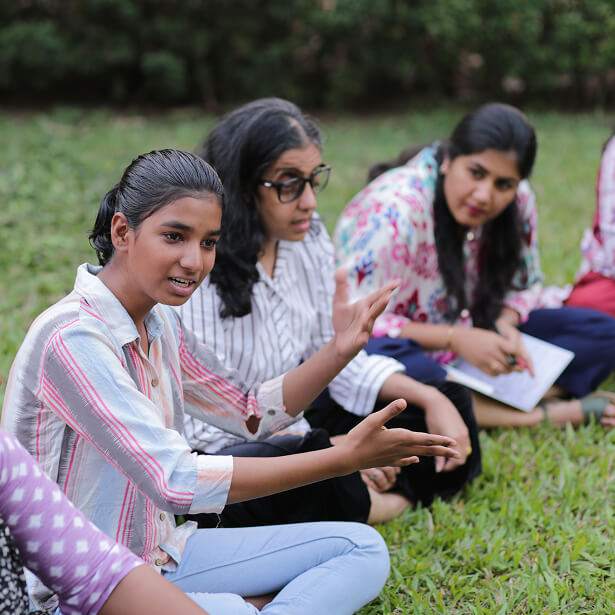Safe, Vibrant and Healthy Public Spaces
In many Indian cities, young people lack safe public infrastructure and services, affecting their health and wellbeing. They also have limited participation in urban development policies and programmes.
A scoping study under HCA-I identified Jaipur and Bhubaneswar for project implementation. Jaipur, Rajasthan’s capital, offers strong collaboration potential across sectors, with youth festivals and forums indicating growing engagement. Bhubaneswar, Odisha’s capital, has a history of child- and youth-friendly initiatives through partnerships with non-governmental organisations, multilateral agencies and the government. Social enterprises are also working to improve conditions for adolescents.
Despite these efforts, both cities lack safe spaces tailored to adolescents’ needs, impacting their physical, social and emotional wellbeing. There is a clear need for a sustainable, locally driven initiative led by adolescents.

Quick facts
Country: india
Cities: Jaipur, Bhubaneswar
Project Timeline
01/11/2025
Project Consortium
World Resources Institute (WRI) (Lead Partner)
WRI India,
Magic Bus India Foundation,
I-India,
Humara Bachpan Trust,
Aaina
About the project
Safe, Vibrant and Healthy Public Spaces was launched in October 2021 with a grant under HCA-I. In December 2022, the project secured HCA-II funding to continue improving public spaces with adolescents in Jaipur and Bhubaneswar.
The project aims to enhance urban spaces and infrastructure for adolescents and their communities. It empowers adolescents as public space ambassadors, engaging them in assessing existing public spaces and proposing design improvements. These proposed changes are displayed in temporary installations to showcase their potential, encourage community engagement and attract future investment from municipal authorities. The project also collaborates closely with city officials to foster dialogue and engagement with adolescents on public space interventions
Key interventions
Public Space Assessment Framework (PSAF) development
Testing and refining a bespoke participatory framework (developed under HCA-I) for assessing public spaces.
Capacity development for stakeholders
Training adolescents to use the PSAF to promote adolescent-friendly public spaces; training city officials and local organisations to support adolescent engagement in public space interventions.
Tactical urbanism
Planning and implementing temporary installations to demonstrate the potential for permanent adolescent-friendly public spaces.
Advocacy
Generating and sharing knowledge to promote investment in the PSA framework, tactical urbanism approaches and adolescent leadership in public space interventions.

Project consortium and partnerships
The project consortium is led by WRI-India and includes local non-governmental organisation partners working with youth groups in each city: Aaina and Humara Bachpan Trust in Bhubaneswar, and I-India and Magic Bus India Foundation in Jaipur, along with a learning partner Auom Impact & Consulting by Insomanywords. The consortium also works closely with municipal authorities in both cities.
